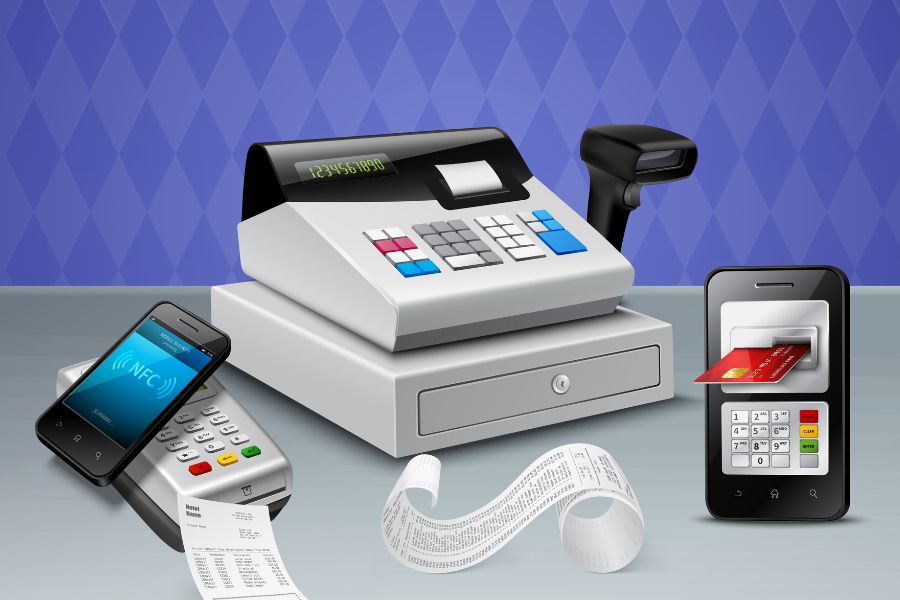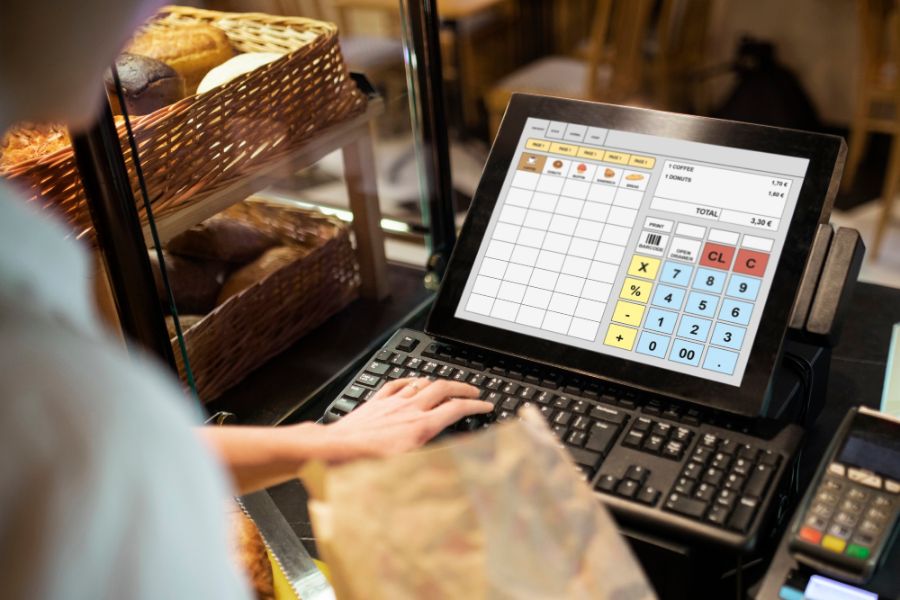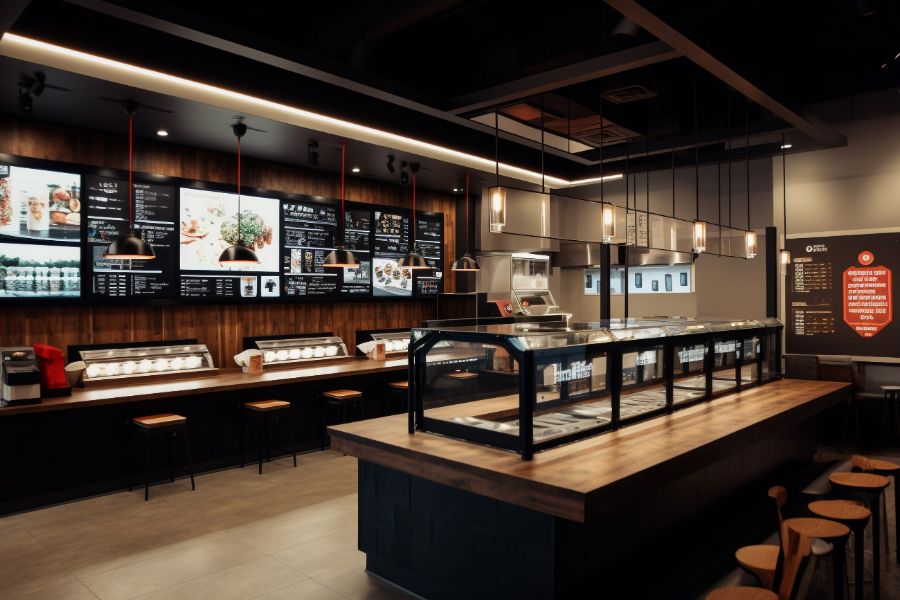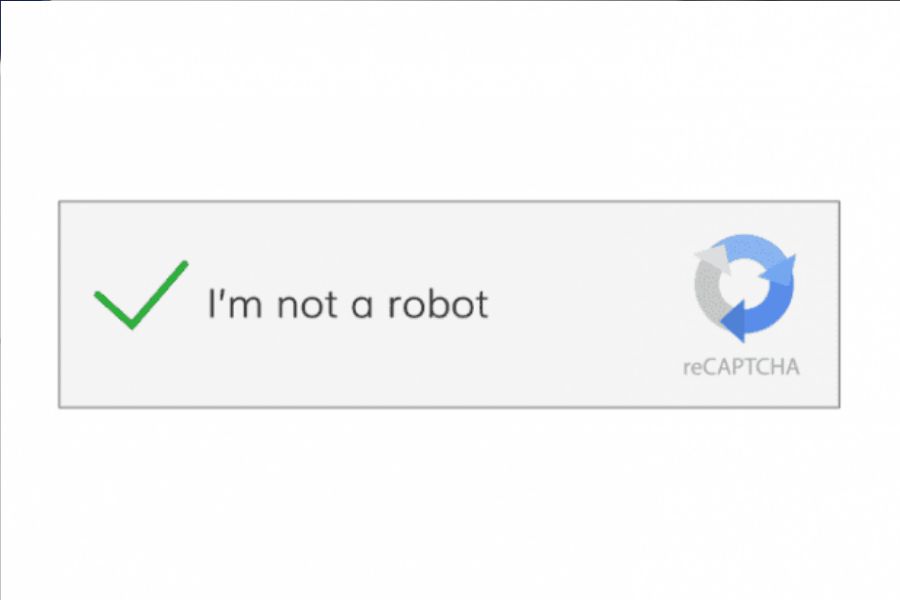Chain retailers need consistent operations, real-time inventory tracking, and a checkout process that works across every location. A reliable Point of Sale (POS) system supports this by handling transactions, syncing stock across stores, and giving teams access to current sales data. This guide compares leading POS platforms built for multi-store retailers, highlighting features that support daily performance and long-term growth.
Highlights:
- Retail chains need a POS platform to keep inventory, sales, and customer data consistent across all locations and channels.
- Key features for chain retailers include multi-store inventory control, real-time data sync, mobile POS, and centralized customer management.
- When comparing POS platforms, focus on scalability, integration options, hardware flexibility, and how well the system fits your sales model.
What are POS Platforms, and Why is it Important?
What Are POS Platforms?
A POS platform combines hardware and software to process transactions, track inventory, and manage retail operations. Cloud-based systems now replace traditional registers, giving retailers mobile access, live reporting, and centralized control.
Retailers use POS platforms to monitor sales, manage stock, and track customer behavior. The proper setup depends on store count, product complexity, and reporting needs.
Standard POS formats include:
- Terminal POS System: A fixed workstation used at checkout counters, often connected to barcode scanners, receipt printers, and card readers.
- Mobile POS System: Runs on smartphones or handheld devices, often with a card reader. Used in pop-up shops, events, or for line-busting on the floor.
- Tablet POS System: Runs on smartphones or handheld devices, often with a card reader. Used in pop-up shops, events, or for line-busting on the floor.
- Self-Service Kiosk POS System: A customer-facing unit with a touchscreen, scanner, and card reader that allows shoppers to complete purchases independently.
- Cloud POS System: Hosted online and accessible from any connected device. It supports multi-location syncing, remote management, and regular updates, which is ideal for chain retailers.
Why are POS Platforms Important?
As retail technology advances, businesses are increasingly adopting cloud-based POS solutions, now considered the gold standard for flexibility and efficiency.
Inconsistent stock data is a common issue. According to the 2023 Unified Commerce Benchmark by Incisiv, 37% of shoppers will switch retailers if an item is out of stock. To fix this, 62% of retail leaders now show live inventory on product pages.
Key advantages of POS platforms:
- Efficiency and Accuracy: Pricing, billing, and inventory adjustments sync automatically, reducing manual errors and mismatched data between stores.
- Enhanced Customer Experience: POS systems support quick transactions, accept multiple payment types, and apply offers instantly, keeping lines moving and service consistent.
- Inventory Control and Optimization: Real-time stock visibility means staff can manage restocks, set reorder alerts, and maintain product availability without over-ordering.
- Data-Driven Decision Making: Sales trends, customer preferences, and seasonal insights help teams adjust pricing, plan promotions, and manage staffing more efficiently.
- Multi-Channel Selling: POS platforms that sync with eCommerce and marketplaces make it easier to manage inventory, process orders, and track customers across all touchpoints.
Fundamental Features of POS Platforms for Chain Retailers
Chain retailers need POS platforms that keep operations consistent, simplify oversight, and support decision-making across every store. These features drive visibility, accuracy, and performance at scale:
- Multi-Location Inventory Tracking – Keeps stock levels aligned across all locations. Teams can shift inventory between stores, avoid overstocking, and prevent product shortages.
- Centralized Sales Processing – Applies pricing, promotions, tax rules, and customer policies uniformly across every location, keeping transactions consistent and reporting accurate.
- Integrated Customer Management – Stores purchase history and engagement data. Retailers can personalize promotions, apply loyalty rewards, and recognize repeat customers across stores.
- Workforce Management Tools – Manages shift assignments, tracks hours, and monitors productivity from a single dashboard. Store managers stay on top of labor costs without switching tools.
- Comprehensive Reporting and Analytics – Surfaces real-time data on sales, product performance, and customer behavior. Teams can act on trends quickly and adjust store operations as needed.
- Seamless Omnichannel Integration – Connects online and in-store activity. Customers can browse, buy, return, or exchange across channels without disrupting sales or inventory records.
- Flexible Payment Processing – Supports multiple payment methods, including credit cards, mobile wallets, and contactless payments, catering to diverse customer preferences.
Comparing Top POS Platforms for Chain Retailers
POS systems vary widely in strengths, pricing, and scalability. For chain retailers, the right choice depends on store count, product complexity, sales channels, and future plans.
In this section, we compare five well-known platforms – ConnectPOS, Square POS, Shopify POS, Lightspeed POS, and Toast POS – based on their features, usability, pricing, and adaptability to multi-location retail.
Platform Overviews and Key Features
This section introduces each POS system, highlighting the core features that define how they serve retail chains. Use this as a quick snapshot before diving into the deeper comparisons.
ConnectPOS
ConnectPOS is a cloud-based POS system designed for retailers operating across physical stores and digital channels. It stands out for its real-time sync with eCommerce platforms like Magento, Shopify, WooCommerce, and BigCommerce, making it easy to manage inventory, orders, and customer data across channels. Built for scale, ConnectPOS gives businesses centralized control over multiple stores, while also supporting mobile POS, custom checkouts, and integrations with third-party systems.
Key Features
- Real-time sync with eCommerce POS platforms (Magento, Shopify, WooCommerce, BigCommerce)
- Multi-store inventory control with barcode scanning and stock transfers
- Mobile POS for in-store queue busting and assisted selling
- Custom checkout workflows, including tax rules, promotions, and payment methods
- Centralized customer profiles with purchase history and loyalty data
- Compatible with PWA consumer apps and self-checkout kiosks
- Wide integration range (ERP, CRM, warehouse, accounting systems)
- Role-based staff permissions and store-level user access control
- Works with both native hardware and third-party devices
ConnectPOS is especially valuable for mid-sized and enterprise retailers that need flexibility, real-time visibility, and tight integration across platforms, without sacrificing performance or usability.
SquarePOS
Square POS is known for being easy to set up and operate, making it popular among small and growing retail businesses. It covers the basics well, payment processing, product management, and simple inventory tracking, and works right out of the box with no onboarding delays.
Key Features
- Built-in payment processing for cards and digital wallets
- Basic inventory tracking with alerts
- Customer directory and basic loyalty tools
- Runs on iPads or Square hardware
- Free plan available with optional paid features
- App integrations available through Square Marketplace
Shopify POS
Shopify POS integrates directly with Shopify’s eCommerce system, which makes it a strong fit for brands that started online and are now expanding into physical retail. It keeps product data, inventory, and customer orders synced across all locations.
Key Features
- Unified inventory and customer data across online and in-store
- Custom checkout options: gift cards, discounts, store credit
- Customer profiles linked to purchase history
- Runs on Shopify hardware or iPads
- POS Lite free with Shopify plan; POS Pro unlocks advanced features
- Access to Shopify’s app ecosystem
Lightspeed POS
Lightspeed POS is built for retailers with deep inventory needs and a wide product range. It suits businesses that need advanced catalog management, vendor tracking, and performance analytics across locations.
Key Features
- Inventory tools: bulk imports, supplier catalogs, automated reordering
- Omnichannel support with eCommerce integrations
- Advanced analytics for products, locations, and customer behavior
- Supports various hardware setups and payment providers
- App marketplace for loyalty, marketing, and accounting add-ons
Toast POS
Toast POS was originally designed for restaurants but is now used by hybrid businesses like cafes or food halls with retail components. It includes food service tools alongside basic retail features.
Key Features
- Menu management with modifiers and combo deals
- Built-in loyalty and digital marketing tools
- Real-time reporting on labor and sales
- Touchscreen-optimized hardware
- Cloud-based with mobile access
- Loyalty, delivery, and online ordering integrations
Feature Comparison: What Chain Retailers Should Look For
A comprehensive POS platform for chain retailers should cover these: managing stock efficiently, syncing sales channels, and having access to clear, actionable data.
| Platform | Inventory Management | Omnichannel Capabilities | Reporting & Analytics | Checkout Flexibility |
| ConnectPOS | Multi-location control, barcode support, stock transfers | Real-time sync with Shopify, Magento, WooCommerce | Standard reports; extendable with integrations | Custom tax settings, mobile POS, promotions |
| Square POS | Basic tracking and low-stock alerts | Limited to Square Online | Basic sales summaries | Simple checkout tools and built-in payments |
| Shopify POS | Syncs stock between online and physical stores | Integrated with Shopify eCommerce | Standard; POS Pro adds deeper insights | Gift cards, split payments, discount codes |
| Lightspeed | Bulk uploads, vendor catalogs, reorder automation | Third-party eCommerce support | Detailed location-based analytics | Checkout customization through workflows |
| Toast POS | Moderate tracking for food/retail hybrid businesses | Limited omnichannel support | Strong real-time reporting | Touchscreen-first, includes tip and loyalty tools |
Ease of Use and User Experience
A good POS system should be easy to learn for staff, fast to use at checkout, and simple to manage behind the scenes. Here’s how each platform handles the day-to-day experience:
- ConnectPOS: Clean interface with customizable dashboards. Real-time sync avoids manual updates. Mobile POS support improves in-store service and queue handling.
- Square POS: Extremely user-friendly. Most users can start selling within minutes.
- Shopify POS: Familiar for existing Shopify users. Minimal setup, especially for online-first brands.
- Lightspeed POS: Smooth interface, but may require more onboarding due to feature depth.
- Toast POS: Fast and responsive for touchscreen use, but more tailored to food service than traditional retail.
Pricing and Affordability
Each platform follows a different pricing structure. Some offer free entry-level plans, while others price based on features, store count, or integrations.
| Platform | Base Pricing | Notes |
| ConnectPOS | Custom pricing tailored to business needs | Free trial available; scales with store count and features |
| Square POS | Free plan available; paid starts at $60/mo | Transaction fees apply; hardware sold separately |
| Shopify POS | POS Lite included; Pro at $89/store/month | Requires a Shopify eCommerce subscription |
| Lightspeed | Starts at $69/month | Add-ons for advanced features; custom quotes for large chains |
| Toast POS | Starts at $0/month (with fees) | Custom pricing for features like loyalty and online ordering |
Scalability and Flexibility
As your retail chain grows, your POS system should grow with you. These systems vary in how well they support multi-location setups, integrations, and enterprise-level needs.
- ConnectPOS: Designed for multi-store expansion. Centralized management, strong eCommerce integrations, and support for third-party systems (ERP, CRM, accounting) make it ideal for scaling retail chains.
- Square POS: Works best for small chains that don’t need deep customization.
- Shopify POS: Scales well within the Shopify ecosystem but less flexible outside it.
- Lightspeed POS: Strong for retailers with large catalogs and multiple vendors. Supports integration with various tools and platforms.
- Toast POS: Scales in food service environments but lacks retail-specific depth for non-hospitality chains.
Final Take: Which POS Fits Your Retail Chain Best?
Go with ConnectPOS if your business spans online and offline, runs multiple locations, and needs deep integration and customization. It’s the most complete solution for fast-moving, omnichannel retail chains.
Choose Square POS if you’re building a small chain and want a simple, fast, and cost-effective setup.
Pick Shopify POS if you’re already using Shopify online and want your physical store to sync up without extra tools.
Use Lightspeed POS if you manage a complex inventory across many stores and want strong analytics and vendor tools.
Consider Toast POS only if your retail setup includes restaurant or food service operations.
FAQs: POS Platforms for Retail Chains
- What’s the biggest difference between a POS for single stores vs. chain retailers?
POS systems for chain retailers are built to handle complexity. That includes centralized inventory tracking across locations, user permissions by store, multi-channel sales sync, and consolidated reporting. In contrast, a POS for a single store often focuses on basic checkout and stock control for one location. If you’re operating, or planning, multiple stores, you’ll need a system that supports real-time data sharing and centralized management.
- Is it possible to sync inventory and sales between my physical stores and online shop?
Yes, but only with POS systems that support omnichannel integration. ConnectPOS, for example, syncs data in real time across major eCommerce platforms like Shopify, Magento, WooCommerce, and BigCommerce. This means your in-store stock updates immediately when a product is sold online, and vice versa. Not all POS systems handle this well, so it’s important to check compatibility with your online platform.
- Do I need to replace my current hardware to switch to a new POS system?
Not necessarily. Some platforms, like ConnectPOS, can run on existing devices, including Android tablets, iPads, or standard desktop setups. However, others (such as Toast POS or Square) work best with proprietary hardware. It’s worth checking hardware requirements up front, especially if you’re managing multiple stores and want to avoid additional equipment costs.
- Which POS platform is best if I plan to keep expanding into new locations?
If scalability is a priority, look for a POS that supports centralized control, permission-based access, flexible integrations, and real-time syncing across all stores. ConnectPOS is built for this kind of growth; it gives you full visibility across locations, supports custom workflows, and integrates with ERP and CRM POS platforms to keep your operations consistent as you scale.
Conclusion
POS platforms aren’t all built the same, especially when it comes to retail chains. What works for a single store often falls short when you’re managing multiple locations, channels, and teams. Square and Shopify POS work well for smaller setups. Lightspeed supports complex inventories, and Toast fits food-based operations. However, ConnectPOS brings the most complete mix of control, flexibility, and sync for retailers selling across stores and online. Before deciding, list your daily challenges and see which platform actually solves them, without extra tools or workarounds. The right POS platform should simplify your operations, not add more steps.
If you’re looking for a robust and scalable POS solution tailored to your business needs, ConnectPOS is your best bet. Contact us today to discover how ConnectPOS transforms your retail chain operations.
ConnectPOS is a all-in-one point of sale solution tailored to meet your eCommerce POS needs, streamline business operations, boost sales, and enhance customer experience in diverse industries. We offer custom POS with features, pricing, and plans to suit your unique business requirements.




